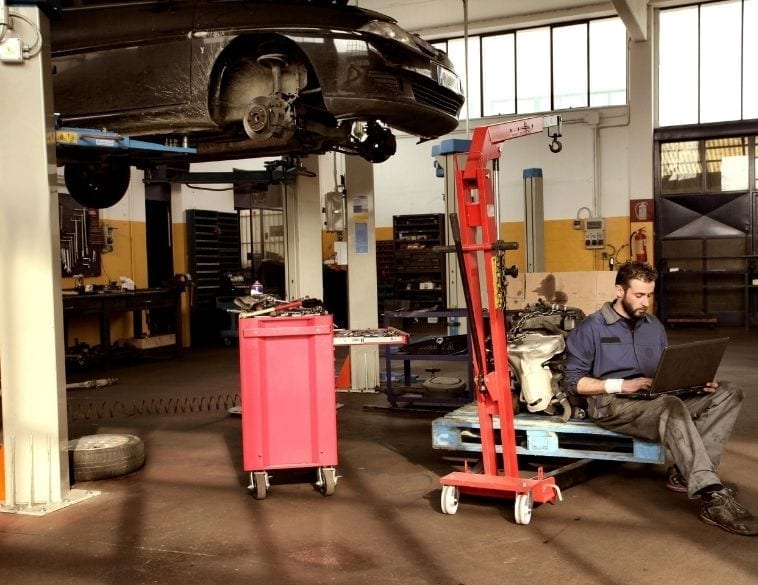In the U.S. presidential election on November 3, nearly 75% of Massachusetts voters voted in favour of their right to access and control their vehicle data.
Let’s explain what this result, perceived as a significant victory for the automotive aftermarket, means.
This popular decision means that by 2022, automakers delivering cars to the state will be required to implement a platform accessible by motorists, and the service and repair providers of their choice, where they can view data that is currently transmitted to a remote server, primarily at the manufacturer’s facility.
A significant result
“This is a very important result that supports efforts here in Canada, as well as around the world, to give consumers access to data that belongs to them and that they should be able to share with independent workshops if they so desire,” said Jean-François Champagne, President of AIA Canada in an interview with Autosphere. “With the evolution of technology, it’s easy for manufacturers to control this information sent directly to them from the vehicle and share it with their dealers. This decision by the voters of Massachusetts encourages free choice and free competition.”
Just because the issue has made a step forward in the United States doesn’t mean we’re going to reap the dividends here. We must continue our own efforts.” – Jean-François Champagne

The Auto Care Association, a U.S.-based group of 538,248 automotive aftermarket companies, including manufacturers, distributors and shops, welcomed the protection of consumers’ right to access and control the mechanical data of their cars and have them serviced by the shop of their choice.
A gain for the consumer
“The Auto Care Association is very pleased with the support of Massachusetts voters on this issue,” said Bill Hanvey, President of the ACA in a press release autosphere put out. This will allow them to control the information their cars share via telematics. It’s a win for the consumer, but also for the coalition that advocates for the right to repair. Vehicle owners have not been impressed by the manufacturers’ intimidation tactics. “In fact, according to one reliable source, the automakers have injected $25 million to beat the referendum question. This included raising safety issues that cast doubt on the competence of independent shops.”
This will allow consumers to control the information their cars share via telematics.”

It should be noted in passing that in the United States, the ballot for presidential elections in each state can include dozens of supplementary questions, from the election of judges or police chiefs to issues such as access to automotive data.
Information Available by Phone
In 2012, Massachusetts had established regulations requiring information sharing, but that was before the advent of telematics, which makes information circulate wirelessly, without using the OBD analyzer well known to garages. This is therefore a tightening of the rules of the game.
What’s more, access for consumers will be very simple since the mechanical data from their car will be shared on their cellphone through a smartphone application.
Also at Auto Care Association, the president said: “As cars become richer and richer in on-board and computerized technologies, telematics exchanges contain important information to help technicians. By controlling this data, manufacturers could limit the repairers they classify as unauthorized.”
In the United States, Massachusetts is perceived as a leader in the area of the right to compensation. It remains to be seen whether other states will follow its lead.
Back in Canada
For Jean-Francois Champagne, the result for our neighbours to the south is a true oxygen balloon for a cause in which AIA Canada has long been invested. With the Cassis agreement, which, let’s not forget, dates back to 2009, a new strategy will be put forward to appeal directly to consumers.
“The time is ripe to take this issue to a new level as the federal government is reviewing access to information and privacy legislation, explains the President of AIA Canada. The guiding principle is that the information disseminated by telematics through the vehicle belongs to each consumer and that they have the right to access and share it with whomever they wish. All of this is done with respect for privacy. But here it’s clear, we’re talking about information that allows for proper maintenance and repair in the shop of the consumer’s choice.”
In a press briefing on November 17, AIA Canada outlined its strategy to raise awareness of this right and to send a clear message to the federal Minister of Innovation, Science and Industry, Navdeep Bains, who is leading the review.
A People’s Petition
Jean-François Champagne, President of AIA Canada, explained that in collaboration with its sister organization in the United States, the Auto Care Association, is now sharing a large petition on the change.org platform on the theme: Your Car, Your Data, Your Choice, which is already active among Americans and which, at the time of writing, had nearly 30,000 consumer signatures. The petition will be sent to the U.S. Congress to “Give vehicle owners access to and control over the data generated by their own vehicles.” In Canada, Minister Bains will be the recipient.
“When you think about personal data, you hear about social media or banking, but you forget about the auto sector. Let’s not forget that as soon as 2022, it is estimated that between 70 and 95 per cent of the new vehicles on the market will be connected by a telemetry system to disseminate masses of information. We must prevent manufacturers from having a monopoly on this data. And we want to remind the government of this. But let’s remember that just because this issue has made a step forward in the United States doesn’t mean we’re going to reap the dividends here. We have to continue our own efforts,” Champagne said.
He mentioned during the press briefing that there is currently no communication with manufacturers, but that on the legislative front, AIA Canada has met with decision-makers in the United States as well as here in Canada.



